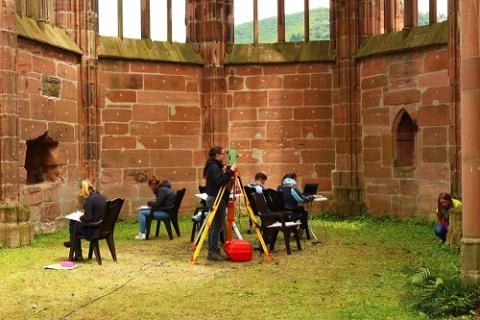From ideas to results with interregional cooperation

In early 2018, we launched a study to look into the long-term effects of interregional cooperation projects similar to those running at the moment. The study focused on projects running between 2007 and 2014, those funded by our programme’s predecessor, INTERREG IVC. They proved to be a great source of evidence about the policy changes and their effects in the participating regions.
The study reached out to 1200+ partners from 150 INTERREG IVC projects with a survey asking about the policy changes and their effects in their regions. 4 respondents out of 5 reported that a policy change took place in their region thanks to their interregional cooperation project. Most frequently, the projects led to the implementation of a new activity or initiative, which had a long-term effect in their territory, as majority of the respondents declared.
Keen to go beyond numbers and statistics? We have collected a set of stories in in-depth interviews, describing the policy changes and their effects. See four examples below!
Heritage preserved with VITOUR LANDSCAPE (Germany)

Inspired by good practices from Cinque Terre, Italy, and Wachau, Austria, the association started organising each summer a two-week work camp for young enthusiasts from all around the world. They learned and helped practically in the landscape preservation for example by reconstructing the dry stone walls, a special ecosystem for a number of species of small animals and plants. Fourth edition of the work camp is to take place this summer.
And this is only one of the results in the valley. Good practices shared in the project inspired other successful initiatives, leading for example to planting of 300 new cherry tree.
Financial instruments with FIN-EN (Italy)
Finlombarda, the financial institution of the Lombardy Region, developed the FIN-EN project to improve the effectiveness of their Structural Funds programme. Besides providing the European Commission with useful suggestions and proposals for the next generation of policies (2014-2020), FIN-EN helped Finlombarda developed a new set of financial instruments as well as a new IT system for application, reporting and monitoring of their implementation. The financial instruments in the region are worth EUR 300 million under the Regional Operational Programme in 2014-2020, all thanks to a good practice transfer from the United Kingdom and experience shared with other partners.
Mobility in rural areas with MOG (Hungary)
In 2013, MOG organised a study visit to Brandenburg, Germany, where people from Central Transdanubian Regional Innovation Agency learned about KombiBus, a mobility scheme that integrates transport of people and small goods in rural areas. They developed a similar transport scheme which connected old people to hospitals and doctors, goods to local stores and students to local schools. 30 villages in three different counties in Transdanubia have adopted the scheme since 2016. 4000+ people living in the depopulated areas have used the new mobility services. This has contributed to the reduction in rural depopulation and the use of electric vehicles in the scheme to environmental pollution in the region.
Innovation vision with PROSESC (United Kingdom)
The PROSESC project helped Hethel Innovation Ltd., an incubation specialist from Norfolk County in the United Kingdom, to develop their vision on innovation in the county, transferred a good practice in supply chain innovation support from Germany, and gradually became the county’s innovation hub and a driver of the local knowledge-based economy. Presently, it is incubating an engineering business every month with 87% of them surviving five years.
You will find more information about these and other 16 stories in the